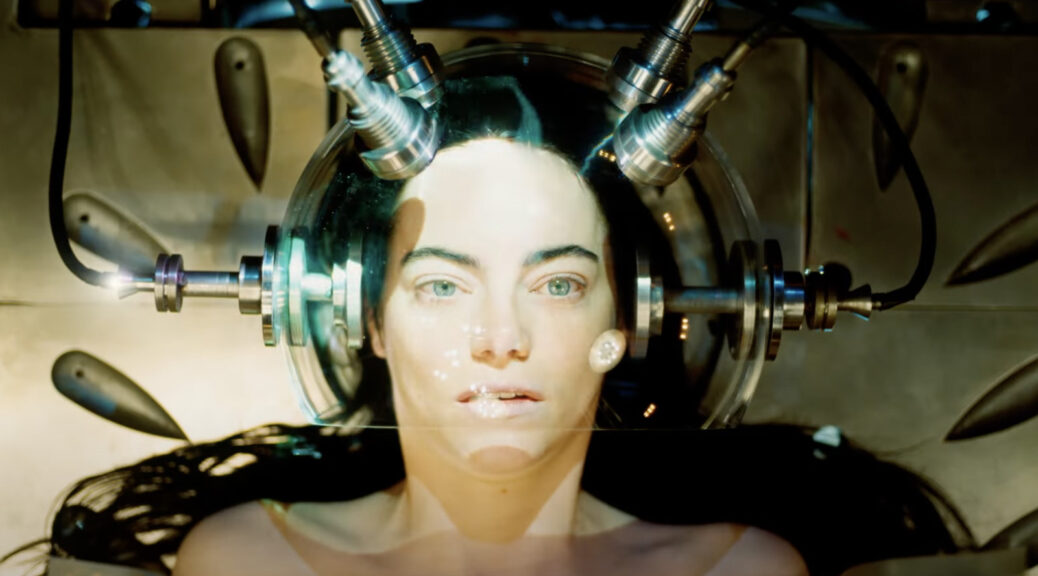Poor Things
by Hope Madden and George Wolf
Frankenstein was a breathing, bleeding act of feminism, not because Mary Shelly’s masterpiece illuminated or elevated women’s discourse, but because Mary Shelly – an 18-year-old girl – created science fiction.
Naturally, her husband took credit.
Many, many writers and filmmakers have taken a stab at reimagining Shelly’s ideas. None is as astonishing as Yorgos Lanthimos and the triumph that is Poor Things.
Working from a script by Tony McNamara and Alasdair Gray, Lanthimos creates a luscious world that is difficult to pin down. It’s part Victorian England, part Blade Runner 2049, and it is where Bella Baxter evolves to challenge the patriarchal notions that surround her.
Bella (Emma Stone, sheer perfection) is brought back from the dead by Dr. Godwin Baxter (Willem Dafoe), a scientist with no romantic notions about polite society – or about Bella, for that matter. Dr. Baxter reanimates Bella’s adult body with the brain of a small child, and under his watch, Bella develops sans the outside pressures of conformity to societal expectations. Which is to say, she thrives.
Imagine a woman’s sense of self forming without shame, without the stifling existence of it. Lanthimos, McNamara and Gray have done just that, and the result is exhilarating.
Still, “God” (as Bella calls him) wishes to keep her safe, as does God’s beguiled assistant, Max (Remy Youssef). But Bella must experience life, and the adventure she fearlessly attacks is simultaneously hilarious, daring, lewd, ingenious and completely intoxicating.
The arc of Bella’s character is as satisfying as anything put to screen, and Stone revels in every unexpected, delightful, brash moment. And though it’s tough to pull your eyes away from Stone, along comes Mark Ruffalo to commit grand larceny with every scene of his hysterical cad Duncan Wedderburn, who indulges his ego teaching Bella about “furious jumping” (take a wild guess) but is reduced to mush when she moves past him without mercy or apology.
Expect Oscar nods for both, and they won’t be alone here.
Lanthimos’s direction is again nimble and ambitious, dipping back into his bag of angles and staging for a feast of ambitious panache. The result is a perfect visual complement to Bella’s journey of intellectual and philosophical wonder, one always buoyed by vivid cinematography from Robbie Ryan (The Favourite), and Holly Waddington’s wonderful costuming.
Poor Things may find longtime Yorgos fans spotting thematic terrain that’s similar to 2009’s Dogtooth, but these latest questions he’s pondering are even more pointed and brilliantly satirical.
What if someone could navigate the world anew, armed with the benefit of physical independence, but with a complete social naïveté that came merely from inexperience rather than isolation? And what if that someone was a woman in a man’s man’s man’s man’s world?
That someone is Bella Baxter, and Poor Things makes her gloriously alive, in ways you’ll probably wish you could be.



